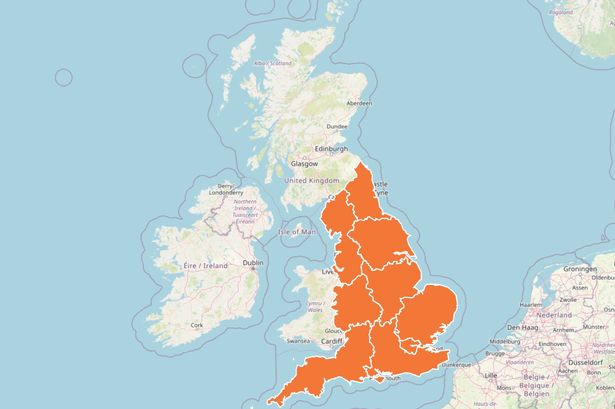The UK is bracing for a prolonged period of intensely cold weather, with the Health Security Agency (HSA) issuing an amber cold health warning extending until Tuesday, January 14th. This warning, covering the entire country, signifies a high likelihood of severe cold weather, icy conditions, and heavy snow in some areas, posing a significant risk to vulnerable populations, including older adults, individuals with pre-existing health conditions, and young children. The HSA stresses the potential for increased hospital admissions and even fatalities related to the cold, urging the public to take necessary precautions to protect themselves and others. This sustained period of cold weather is expected to place a strain on health and social care services, requiring increased vigilance and proactive measures to mitigate the risks.
The amber alert highlights the seriousness of the situation, indicating that the cold weather could have a substantial impact on the health and well-being of the general population. Beyond the immediate dangers of hypothermia and frostbite, the prolonged cold can exacerbate existing health problems, particularly respiratory and cardiovascular conditions. The elderly are particularly susceptible to the adverse effects of cold weather due to decreased thermoregulation, making them more vulnerable to hypothermia even in moderately cold temperatures. Similarly, those with pre-existing health conditions, such as heart disease, lung disease, and diabetes, are at heightened risk as the cold can strain the heart and respiratory system. The HSA advises individuals to check on vulnerable neighbors and relatives, ensuring they have adequate heating and access to essential supplies.
The anticipated strain on health and social care services is a significant concern. Hospitals are likely to see a surge in admissions due to cold-related illnesses and injuries, including falls on icy surfaces and exacerbations of respiratory conditions. This influx of patients could put pressure on already stretched resources, potentially leading to longer wait times and delays in treatment. Social care services will also be challenged to provide adequate support to vulnerable individuals living in the community, requiring increased coordination and resource allocation. The HSA is working closely with healthcare providers and local authorities to ensure preparedness and responsiveness to the demands of the cold weather.
Beyond the immediate health risks, the prolonged cold spell can disrupt daily life and pose logistical challenges. Travel disruptions are likely, with potential road closures due to ice and snow, along with delays and cancellations of public transport services. School closures are also a possibility, disrupting education and childcare arrangements. Businesses may experience temporary closures or reduced operations, potentially impacting livelihoods. The cold weather can also affect energy supplies, with increased demand potentially leading to power outages in some areas. The government is urging individuals and organizations to take proactive steps to prepare for these potential disruptions, including stocking up on essential supplies, checking travel updates, and ensuring homes are adequately insulated.
The HSA emphasizes the importance of individual preparedness and proactive measures to mitigate the risks associated with the cold weather. These include dressing warmly in layers, ensuring adequate heating at home, staying hydrated, and avoiding prolonged exposure to the cold. Regularly checking on vulnerable neighbors and relatives is also crucial, offering assistance with shopping, heating, or other necessary tasks. Furthermore, it is important to be aware of the signs and symptoms of hypothermia, which include shivering, confusion, drowsiness, and slurred speech. Prompt medical attention is essential if hypothermia is suspected.
The amber cold weather alert serves as a critical reminder of the potential impact of severe weather on public health and well-being. The proactive measures taken by individuals, communities, and healthcare services will play a vital role in minimizing the risks associated with this prolonged cold spell. By heeding the warnings, taking necessary precautions, and supporting vulnerable individuals, the UK can navigate this challenging period and ensure the safety and well-being of its population. The emphasis remains on collective responsibility and preparedness to mitigate the potentially serious consequences of this extended period of cold weather.














